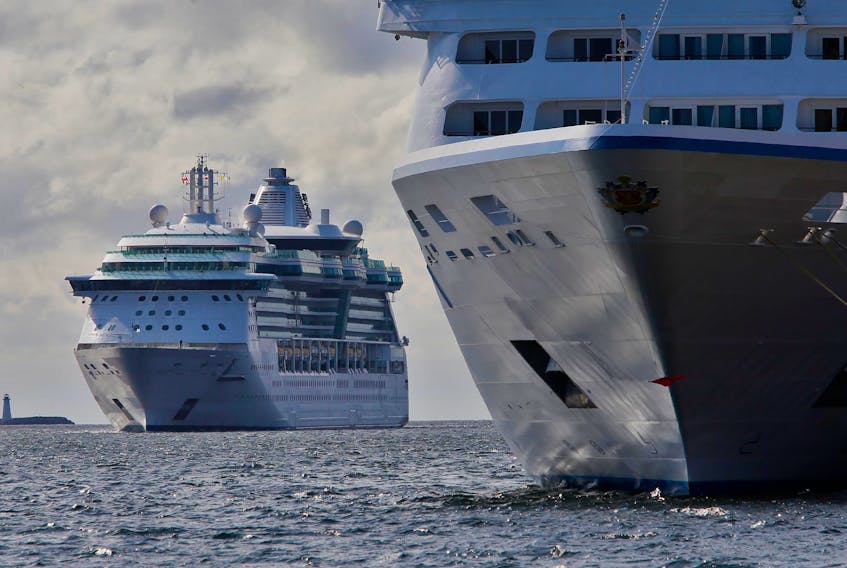They’re a big business in the Atlantic region.
In 2019, Halifax was planning for 192 cruise ship visits and 320,000 passengers.
For 2020, the expected number of visits jumps to 198.
Saint John, N.B. is expecting 89 visits in 2020. St. John’s is expecting 24 of the vessels. Charlottetown’s looking at 93 port visits in 2020.
The cruise visits, municipal leaders insist, bring new money to the cities involved — and quickly. They’re the kind of tourism that might not float all boats, but it does serve to help certain segments of the tourism business, from taxis to local sight-seeing companies to some retail operations.
But the current coronavirus outbreak is showing an interesting side to cruise ships — and one that the industry itself may have to find a way to overcome.
Ships have always been seen as hotbeds for opportunistic infections; close quarters and shared dining facilities bred mass illness for so long that vessels actually had a yellow and black flag to fly to warn of plague on board, or a simple yellow flag to warn of quarantine.
The Diamond Princess, a sister ship of one of the vessels scheduled to make its way to several Atlantic Canadian ports in the summer of 2020, is currently holed up in Japan in quarantine. One person who had left the vessel tested positive for the coronavirus after falling ill; now, there are a burgeoning number of cases on the vessel.
Since then, 174 cases have been diagnosed, with 39 new cases on Tuesday alone. Passengers have been confined to their cabins, except for an hour a day on deck.
Another cruise vessel, the Westerdam, which left Hong Kong less than two weeks ago, had been unable to find a port willing to accept it, even though there are no confirmed cases on board. Cambodia finally agreed to allow the vessel to dock, after five other countries refused to allow the vessel to enter their ports.
Holland America, which owns the Westerdam, has offered full refunds for passengers on the voyage, and has cancelled the vessel’s next cruise. The company also said, “we are assessing the impact of current port restrictions in Asia on cruises departing Feb. 29 or later.”
Ships have always been seen as hotbeds for opportunistic infections; close quarters and shared dining facilities bred mass illness for so long that vessels actually had a yellow and black flag to fly to warn of plague on board, or a simple yellow flag to warn of quarantine.
In more modern times, the virulent digestive illness known as norovirus has been a frequent — and stunningly gregarious — visitor on some cruises, giving guests a holiday experience they are likely never to forget. It’s also proved itself to be remarkably difficult to eradicate, even after passengers leave an affected vessel.
This is not to suggest that floating plague-ships are bearing down on the Atlantic coast — far from it. But the cases are bad press, as well as a direct expense.
It will be an industry that could take some fiscal body-blows, with impacts that could easily reach us.








